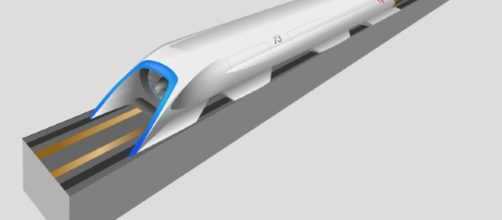When Elon Musk tweeted that he had a “verbal agreement” to build an underground Hyperloop in the Northeast Corridor between Washington D.C. and New York, several people in Texas noticed and thought they had a better idea. Rep Joaquin Castro, a Texas Democrat who has been mentioned as a possible opponent for Sen. Ted Cruz in the 2018 midterms, tweeted, “Build it in Texas.” He added in another Tweet, “Texas should be building @ElonMusk Hyperloop.”
What would a Texas Hyperloop look like?
A group called Texas Hyperloop has already proposed a line that would connect Houston and Dallas with stops in Austin and San Antonio.
A cargo Hyperloop line would stretch between San Antonio and Nuevo Laredo on the Mexican border. The combined line would facilitate commerce between Mexico and Texas and would link all four of Texas’ largest cities. The Texas Hyperloop would directly compete with commuter airlines and a proposed commercial high-speed rail line directly between Houston and Dallas.
What does Elon Musk have to say about it?
Musk subsequently tweeted that after the Northeast Corridor Hyperloop, he would like to build a line between San Francisco and Los Angeles and the proposed Texas line. It is uncertain whether Musk would create both or either line underground using the Boring Company technology or whether the California and Texas Hyperloops would be elevated on pylons has previous designs have suggested.
How soon can construction start?
When Musk made his original tweet, it was uncertain who had given him his verbal approval. New York City officials expressed surprise at the announcement, having never heard of the idea. It is evident, though, that even with the support of the United States federal government, the regulatory approval process for a Hyperloop is going to be mind-numbingly complex and will likely last years. This face will especially be true for a Northeast Corridor line that would pass through three states and the District of Columbia and would link four cities.
California, by the nature of its government, would be a tough regulatory nut to crack as well. Environmental hoops alone will be hard to surmount.
California is also fixated on building a complicated and costly high-speed rail line that a Hyperloop would render unnecessary.
Texas may be the best bet for the first American Hyperloop. As Musk knows, having dealt with state officials when he was looking for a site for his private space port, now under construction near Brownsville, Texas is a very business friendly state. Austin politicians will likely fall all over themselves offering tax and other incentives instead of setting up regulatory roadblocks for the honor of hosting the first American Hyperloop.


